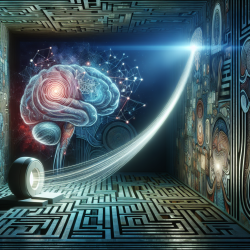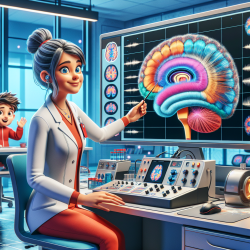Introduction
Age-related macular degeneration (AMD) is not only a leading cause of blindness among older adults but is also associated with accelerated cognitive decline. Recent research titled "Accelerated Brain Atrophy, Microstructural Decline and Connectopathy in Age-Related Macular Degeneration" sheds light on how AMD affects brain health, offering insights that can be pivotal for practitioners aiming to enhance their therapeutic strategies.
Key Findings from the Research
The study conducted a longitudinal diffusion MRI analysis on participants with AMD compared to a control group. Significant findings include:
- AMD participants showed reduced brain volumes in areas associated with vision and cognition, such as the cuneate gyrus and temporal lobes.
- Over two years, AMD participants exhibited faster rates of volume and fractional anisotropy (FA) reduction, particularly in the left temporal cortex.
- Changes were not limited to visual processing areas but extended to regions involved in memory and language, indicating a broader impact on brain networks.
Implications for Practitioners
For practitioners, these findings emphasize the need to consider AMD as a condition with far-reaching effects beyond vision loss. Here are some actionable insights:
- Holistic Assessments: Regular cognitive assessments should be integrated into the care plan for patients with AMD to identify early signs of cognitive decline.
- Interdisciplinary Approach: Collaboration with neurologists and cognitive therapists can enhance patient outcomes by addressing both visual and cognitive impairments.
- Patient Education: Educate patients and their families about the potential cognitive impacts of AMD to foster understanding and proactive management.
Encouraging Further Research
The study opens avenues for further research into the mechanisms linking AMD with cognitive decline. Practitioners are encouraged to engage in or support research initiatives that explore:
- The role of neuroplasticity in compensating for vision loss in AMD patients.
- Potential interventions that could slow down cognitive decline in AMD, such as cognitive training or lifestyle modifications.
- The genetic and environmental factors that might contribute to the shared pathways of AMD and neurodegenerative diseases.
Conclusion
Understanding the broader impacts of AMD on brain health is crucial for developing comprehensive care strategies. By integrating these insights into practice, practitioners can better support their patients in managing both the visual and cognitive challenges of AMD.
To read the original research paper, please follow this link: Accelerated Brain Atrophy, Microstructural Decline and Connectopathy in Age-Related Macular Degeneration.










